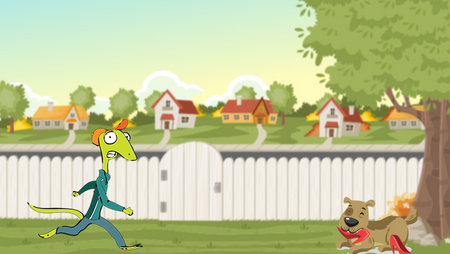
Teaching Patience
Bible Verse
2 Always be humble and gentle. Patiently put up with each other and love each other. Ephesians 4:2
As I read Ephesians 4:1-6, the line that sticks out to me is, “bear with one another in love.” I remember a few years back when my son was overwhelmed by everything going on at the time. He was playing a varsity sport and taking a full load of classes with lots of homework. He had had enough. It would have been easy for me to lose patience with him—let him know where he had wasted time, that he just needed to get his work done, and to keep working harder. But that wasn’t what he needed at that time. He needed me to bear with him in love. He needed me to be patient with him, sit with him, and listen to what he was experiencing at that moment. So often that is how God shows patience to us as well. In the middle of our frustration or our bad behavior he bears with us in love and never leaves our side.
Grow Patience
Bearing with one another requires patience. It requires taking the time to step into someone else’s shoes to understand their pain and do your best to experience it right along with them. That’s empathy. Empathetic people see another’s point of view and understand their situation. That helps us tolerate and bear with their behavior.
Nobody is born naturally patient. Every parent needs to learn empathy-driven patience over time. We bear with a lot of different kinds of behaviors from our kids, some exasperating or even infuriating. In Galatians 5:22-23, Paul describes patience as one of the fruits of the Spirit that grow out of our relationship with Christ. As we grow in our faith in Jesus, the Holy Spirit enables us to grow in patience to bear with one another.
Teach Patience
Our kids can grow in patience just as they grow in other ways. They learn when we model empathy and patience for them. It also involves that we communicate our expectation of patient behavior and honest conversations when we don’t see them exhibiting it.
- Before we can model patience ourselves, we have to take a look at our own life. What causes us to be impatient? Maybe stress at work or home causes you to be impatient. Are you too busy or too tired? Knowing the things that cause you to feel impatient will help you model patience as a parent.
- Modeling patience is to demonstrate for our children what it looks like to bear with someone with empathy in a difficult situation. Your child spills a large drink on the table just as everyone is sitting down to dinner. Modeled patience in that situation is recognizing the child probably feels embarrassed by the accident and sharing their experience by calmly coming alongside to help the child clean up the mess.
- Teaching kids patience can involve difficult conversations when they aren’t being patient. This is where empathy will be needed most. Maybe your child’s impatience stems from stress or busyness or tiredness or a lack of understanding. Maybe their triggers are similar to yours. Try asking questions like, “Why are you in such a hurry right now?” or “What is going on that is causing you to feel impatient?” As you help them identify the things that are causing their impatience, empathize with them—bear with them in love.
Together you can grow in the fruit of patience in both of your lives. Bear with each other in love and share both the struggles and the joys that a journey towards patience can bring.
Want to dig deeper? Check out Family Fire's article Life Skills: Teaching Children Empathy





